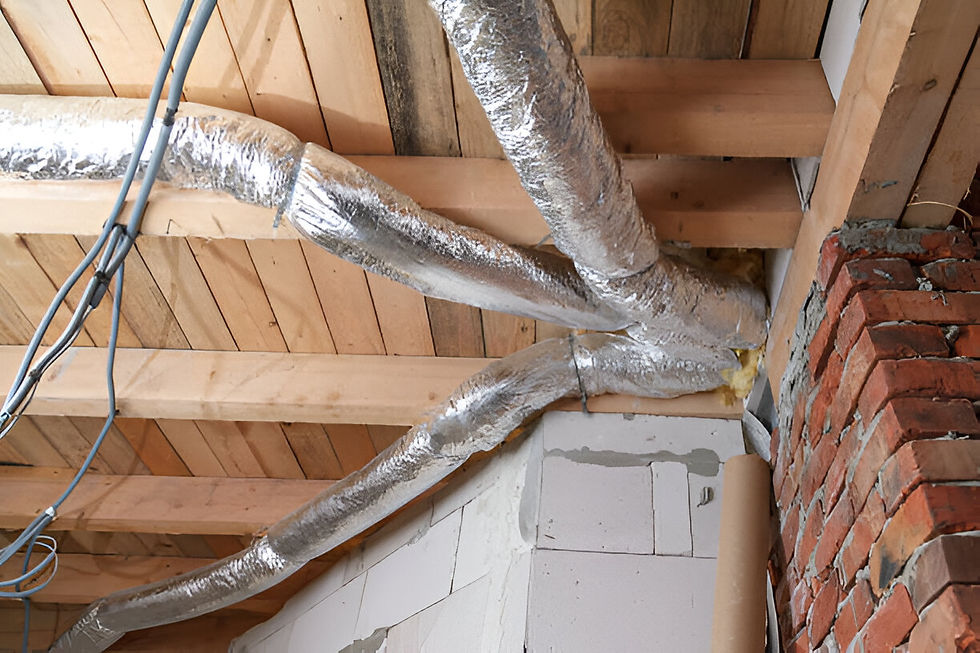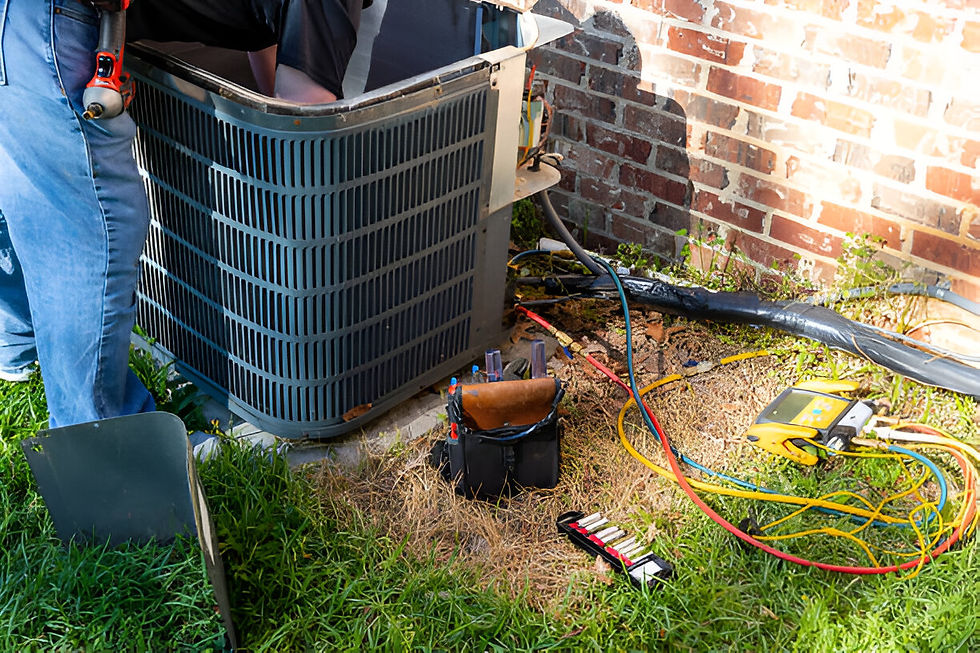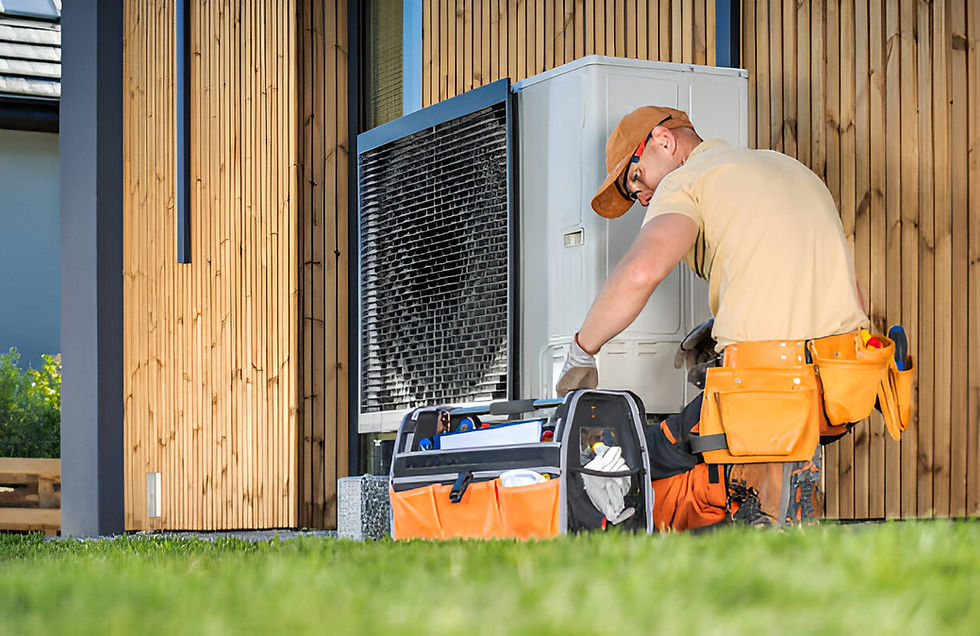Canada Steel Crackdown 2025 | HVAC Costs
- For Saving
- Aug 3
- 4 min read
Canada’s new steel tariffs are driving up the cost of air conditioners, furnaces, and ductwork across Greater Toronto. For Saving HVAC helps homeowners navigate these changes with up-to-date advice and transparent quotes for HVAC services Greater Toronto. Don’t wait for prices to rise—upgrade your system with help from local experts.
If you’re in the market for HVAC services Greater Toronto—whether air conditioner installation, furnace replacement, or new ductwork—understanding what’s changing (and why) is essential to saving money and making a smart investment.

1. Why Are HVAC Prices Rising in 2025?
Across Greater Toronto, homeowners are noticing that the cost of installing or upgrading their HVAC system is on the rise. The main reason? Canada’s new crackdown on imported steel. Steel is a core material for furnaces, air conditioners, heat pumps, and all ductwork.New government tariffs and stricter regulations have made imported steel more expensive, impacting everything from product manufacturing to shipping and distribution. If you’re planning a home comfort upgrade in 2025, this industry shift is impossible to ignore.
2. The Steel Crackdown – What’s Happening in Canada?
In 2025, the Canadian government introduced higher tariffs and stricter controls on imported steel—especially from non-free trade countries like China and Turkey. The goals:
Protect Canadian steel producers
Ensure fair market pricing
Counteract steel dumping from overseas
These changes follow similar moves in the U.S., putting new pressure on the global steel supply chain and directly impacting costs for HVAC systems and installation in Greater Toronto.
3. Canada Steel Tariff Table – What You Need to Know
Import Type | Tariff Rate Quota | Tariff Beyond Quota |
Non-Free Trade Countries (China, etc.) | 50% of 2024 volumes | 50% tariff |
Free Trade Countries (not U.S.) | 100% of 2024 volumes | 50% tariff |
Any steel melted/poured in China | No exemption | 25% tariff |
U.S. Imports | Exempt under CUSMA | No change |
What does this mean for HVAC?
Steel melted and poured in China faces a 25% tariff—no exceptions.
Most imports from non-free trade countries, and any “over quota” steel, face a steep 50% tariff.
U.S. steel is still exempt under the current CUSMA agreement.

4. Why Steel Matters for HVAC Services Greater Toronto
You might not realize it, but steel is at the heart of almost every HVAC system:
Furnaces: Cabinets, heat exchangers, frames
Air Conditioners: Coils, chassis, condenser and evaporator units
Heat Pumps: Cabinets, support frames, coils
Ductwork: Every inch of metal ducting is steel-based
Whether you’re shopping for a top-tier Lennox, Carrier, Trane, or Goodman, or a more budget-friendly option, nearly every major HVAC brand relies on steel. So, no matter which system you choose, these changes affect everyone.
5. The Direct Impact on HVAC Costs in 2025
Higher HVAC Equipment Prices:
Manufacturers facing increased steel costs are passing them on to contractors and, ultimately, to homeowners. If you’re getting HVAC quotes this year, expect to see price increases for:
Custom ductwork or retrofits
Longer Lead Times:Some models or replacement parts may be back-ordered, especially for systems that rely on imported steel or components. Planning ahead is more important than ever.
Fewer Deep Discounts:With tighter margins, dealers are less likely to offer big “blowout” sales or rebates, especially on the most in-demand products.
Example:An air conditioner installation Greater Toronto that might have cost $4,200 in 2023 could be $4,800 or more in 2025, depending on system size and features.

6. How Homeowners Should Respond
Act Early:If your HVAC system is aging, don’t wait. Prices are expected to rise further as steel supplies tighten and existing stock runs out.
Get Multiple HVAC Quotes:Compare several authorized dealers in Greater Toronto for availability, price, and service options.
Ask About Canadian-Made Equipment:Some HVAC brands use more Canadian steel or are less affected by global tariffs.
Prioritize Energy Efficiency:Higher upfront costs can be offset by long-term utility savings. Look for systems that qualify for Ontario or federal rebates.
Plan for Maintenance:Regular service from a trusted HVAC services Greater Toronto can extend your system’s lifespan and help avoid emergency replacements.
7. Tips for Navigating the 2025 HVAC Market
Work With Authorized, Local HVAC Services Greater TorontoAuthorized dealers are more likely to have the latest products, better pricing, and priority access to manufacturer support.
Budget RealisticallyExpect higher upfront costs but balance this with future energy savings and reliability.
Ask About Rebates and FinancingMany energy-efficient systems still qualify for provincial and federal incentives, which can offset higher equipment prices.
Don’t Delay MaintenanceRegular check-ups keep your current system running and buy you time before a replacement is needed.
Be Flexible With Brands or ModelsIf your first choice is back-ordered, ask about comparable systems that might be available sooner.
8. Frequently Asked Questions – Canada’s Steel Crackdown & HVAC Costs
1. Why did Canada impose new steel tariffs in 2025?To protect domestic steel producers and counter steel dumping from China, especially after the U.S. raised tariffs on Canadian steel.
2. How will these steel tariffs affect HVAC system prices?Steel is a key component in HVAC units. The tariffs may cause price increases for furnaces, air conditioners, and ductwork.
3. Will HVAC installation costs rise in Ontario due to tariffs?Yes, HVAC installation costs may increase as manufacturers pass on higher steel material prices to contractors and homeowners.
4. Are Canadian-made HVAC systems less impacted by tariffs?Yes. Choosing Canadian-manufactured HVAC equipment can help avoid delays and minimize cost hikes from imported steel tariffs.
5. What steel products are targeted under Canada’s 2025 tariffs?Steel melted and poured in China, and excess imports from countries without or with free trade agreements, now face 25–50% tariffs.
6. Should I upgrade my HVAC system before prices increase?Yes. Acting early in 2025 may help you avoid the price surge caused by supply chain delays and rising steel import costs.
9. Conclusion & Call-to-Action
Key Takeaways for Greater Toronto Homeowners:
Steel tariffs and supply issues are raising HVAC costs in 2025.
Planning ahead, getting multiple quotes, and considering energy-efficient systems are crucial.
Choose Canadian-made equipment or authorized local dealers to limit delays and cost increases.
Work with trusted, authorized local experts for the best support.
Ready to upgrade or need a quote?Contact For Saving Home Services Inc. for honest advice, up-to-date HVAC quotes, and expert installation anywhere in Greater Toronto.Secure your comfort before prices rise—get your free quote today!




コメント